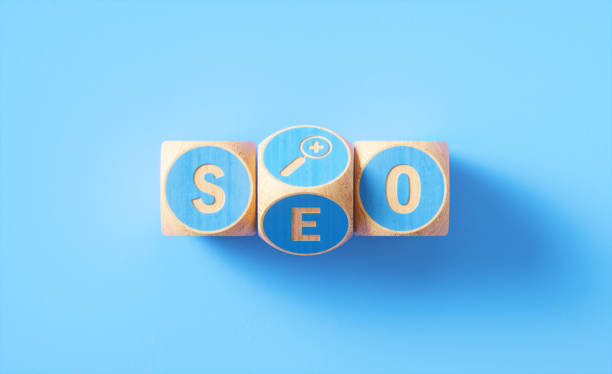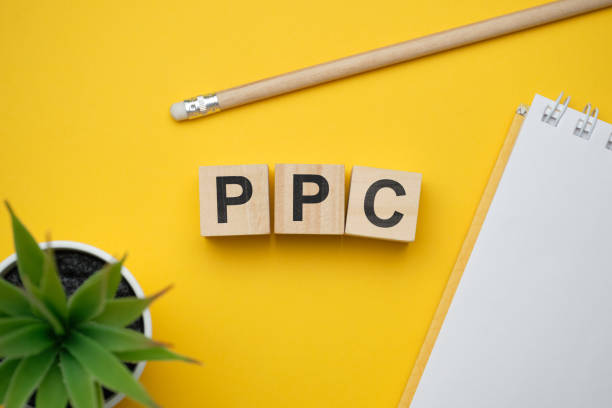Which Is Better for Your Small Business: SEO or PPC?
The digital world is quite large. And it can be challenging to separate out from the competition, particularly if you own a small firm. It might be challenging to get visitors to your website and keep them there long enough for them to make a purchase because there are so many websites competing for their attention.
Fortunately, there are several things you can do to increase the visibility and appeal of your website to potential clients. Search Engine Optimization (SEO) and Pay-Per-Click (PPC) advertising are two of the most widely used strategies. Which one, nevertheless, is better for your company?
We'll compare SEO and PPC head-on in this blog article to find which performs better. We'll discuss the advantages and disadvantages of each approach so you can choose the one that's best for you.
What is SEO?
The method of search engine optimization (SEO) can be used to increase the visibility of your website in search engine results pages (SERPs). In order to make your website as appealing to search engines as possible, SEO entails optimizing its content, architecture, and on-page components like titles, metatags, and anchor text.
By making changes to your website's SEO, you are effectively communicating to search engines your desire for it to appear highly for specific keywords or phrases. Additionally, you are more likely to receive traffic from users who are searching for those terms if you score highly for those keywords.
Advantages of SEO
Using SEO to market your website has a lot of benefits.
1. SEO Brings in Quality Visitors
You are more likely to receive organic traffic from users who are genuinely interested in what you have to offer when you score well for a keyword. They have a higher likelihood of being prospective clients or at the very least, individuals who are interested in your good or service. As a result, you are receiving traffic from customers who are interested in what you have to offer, rather than from folks who are just searching for anything to pass the time.
2. SEO is economical
You should always consider your budget when promoting your website. And one of the most economical ways to achieve that is through SEO. You can avoid paying for advertising by using SEO. Simply by ranking highly for the appropriate keywords, you can drive visitors to your website. It will be worthwhile in the long term to put some time and effort into optimizing your website.
3. SEO Delivers Long-Term Results
Your goal keyword rankings are likely to remain high once you've attained them for a considerable amount of time. This is due to the fact that your site will essentially be prepared for the long term once you have optimized it and built up some quality backlinks. Although you might occasionally need to perform maintenance, unlike with PPC, you won't always need to pay for traffic.
4. SEO Increases Brand Recognition
Getting a high ranking for your selected keywords might aid in increasing brand recognition. People will begin to identify your brand with those terms when they find your website among the top results for their organic search. And over time, this can aid in raising the credibility and visibility of your brand.
Cons of SEO
Naturally, there are certain drawbacks to employing SEO to market your website.
1. SEO Is Protracted
The fact that SEO takes time to work is probably its biggest drawback. Sometimes it may take a few months or even years before your efforts bear fruit. And getting high rankings can be considerably more difficult if your market is competitive.
2. SEO is not 100% Guaranteed
Although SEO is a highly powerful method of website promotion, it cannot be relied upon to be successful. In life, nothing is certain, and SEO is no different. Even if you follow all the appropriate steps, you could not get the desired outcomes. It might involve some risk, but the risk is worthwhile.
3. SEO Demands Continuous Effort
The ongoing work required to maintain your rankings is another drawback of SEO. Your rankings will start to deteriorate and your traffic will start to decline if you cease optimizing your website or constructing backlinks. Therefore, consistent effort is required if you wish to maintain your site's top ranking.
4. SEO is challenging to learn
It can be challenging to master SEO if you are unfamiliar with it. There is much to learn about topics like link building, on-page SEO, and keyword research. And you might want to hire someone to do it for you if you don't have the time or patience to learn everything.
What is PPC?
Online advertising that lets you pay for clicks on your adverts is known as pay-per-click (PPC) advertising. PPC only charges you when someone clicks on your advertisement. In contrast, SEO requires no payment until your website starts to rank highly for the appropriate keywords.
PPC advertisements can expose your website to a much larger audience. The PPC option can get your website or pages on the top page of search engines like Google or Bing considerably more quickly than waiting for organic SEO to take effect.
A wonderful strategy to bring your website in front of potential customers is through paid search advertising. However, it also comes with a unique mix of benefits and drawbacks.
Benefits of PPC
Using PPC to advertise your website has a lot of benefits.
1. PPC is Quick
Your website will begin to receive traffic soon after you launch a PPC campaign. Your advertising will begin to show up on search engine algorithms as soon as you have configured your paid search advertisements and chosen the appropriate keywords. Additionally, you can anticipate seeing a significant volume of traffic arrive immediately because consumers are accustomed to clicking on the top of search results.
2. PPC Can Be Tracked
PPC is extremely trackable, which is just another fantastic feature. To monitor how many people are clicking on your advertising and interacting with your website, utilize tools like Google Analytics. You may use this information to enhance and increase the effectiveness of your advertisements, which can be quite helpful.
3. PPC Puts You First
Your advertising will show up at the top of SERPs if you employ PPC. And as we all know, more often than the results further down, people tend to click on the top results. As a result, increasing your site's visibility with PPC can help you increase traffic.
4. PPC is Versatile
Also very adaptable is PPC. Your budget, targeting, and keywords can be changed as necessary. This gives you a great deal of control over your advertising strategy and enables you to get the finest results.
Cons of PPC
The use of PPC has a few drawbacks as well.
1. PPC is Not Always Cheap
The main drawback of PPC is that it might be costly. You will have to pay for each click on your ad if you want to rank well in SERPs. This can add up very quickly, especially if your advertisements are not doing well. If you are not diligent, it is simple to spend a lot of money on advertisements with no return on your investment.
2. Your traffic will stop once you stop paying
Another drawback of PPC is that your traffic will stop if you stop making payments. If you stop buying PPC advertisements, your traffic would stop right away, unlike SEO, where your site will continue to be crawled and can start ranking for keywords over time. When planning your PPC campaign's budget, keep this in mind.
3. PPC Has a High Long-Term Cost
PPC may eventually prove to be expensive. You will still need to pay for your advertising even if they are successful. Additionally, when your business expands, your traffic will probably grow as well, necessitating a larger investment in your PPC campaign in order to keep the same level of traffic. Therefore, PPC may wind up costing you a lot of money in the long run if you're not attentive.
4. PPC Still Has Room for Competition
PPC can be quite competitive, particularly for well-known terms. You should anticipate paying a lot for each click if you are bidding on keywords that are being used by bigger businesses. Additionally, there is no assurance that potential clients will click on your paid advertisements even if you are successful in getting them in front of them.
How to Select Between PPC and SEO
Your particular business and goals will determine the appropriate response to this. Here are a few things to think about before you decide.
1. Do You Want Results Right Away?
PPC is a better choice if quick results are what you're after. After setting up your campaign, you can almost instantly witness a rise in website visitors.
2. How Flexible Is Your Budget?
Your budget's flexibility is another factor to take into account. You must be prepared to set aside a specific sum of money each month to maintain your Google advertisements since PPC campaigns require routine upkeep. The best course of action is to concentrate your efforts on SEO if your budget is restricted because you might not be able to afford a PPC campaign.
3. Do You Have Time to Commit to SEO?
It may take several months before you start to notice any noticeable changes after investing a lot of time and effort in SEO. PPC can be a better alternative for you if you're not ready to put in the time and effort.
4. What Traffic Need Do You Have?
PPC might not be the ideal choice if you want a lot of traffic. While SEO can take some time to begin producing results, once it does, you can anticipate significantly more traffic. In comparison to the traffic you may obtain from SEO, the traffic you are also getting from PPC will be a drop in the ocean.
5. How Strongly Competitive Is Your Niche?
Your industry's level of competition is something else to take into account. PPC can be an expensive investment if several firms are vying for the same keywords. However, SEO may be a less expensive choice if there are fewer competitors.
6. What Business Objectives Do You Have?
Last but not least, you should think about your marketing objectives and business goals. PPC is a superior choice if you want to produce leads or sales. But SEO can be a better option if you want to raise brand awareness or expand your clientele.
Final Reflections
It can be challenging to decide between SEO and PPC, but it's crucial to examine the benefits and drawbacks of each choice to choose the one that will work best for your company. PPC can be the ideal choice for you if you require rapid results and have a flexible budget. However, it can be the best option if you're searching for a less expensive option and are prepared to put some time and effort into SEO. The optimal response will ultimately rely on the particular demands and goals of your organization.
If you're still unsure of which one would be a better technique for your website to utilize, feel free to get in touch with Denver Digital Agency today. As one of the leading digital agencies in the country, they know what's the best course for your company to go to. So, set up an appointment with them and let them help you achieve your business goals.



